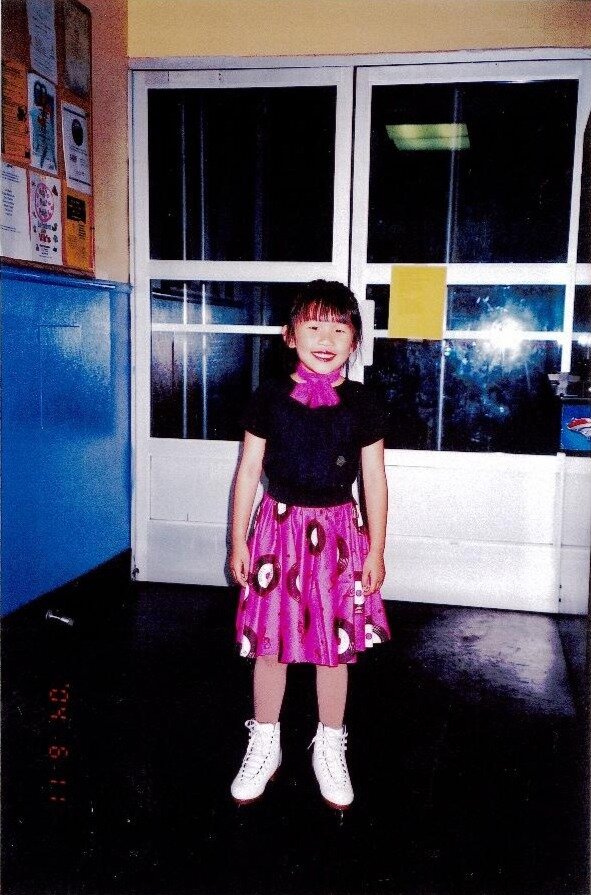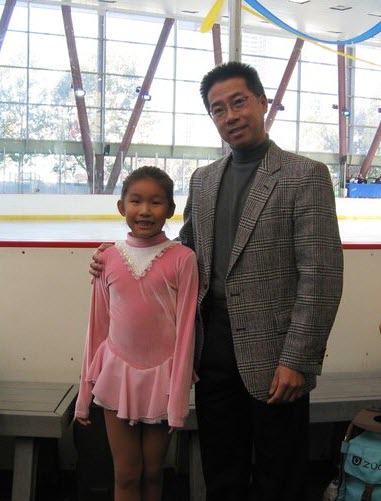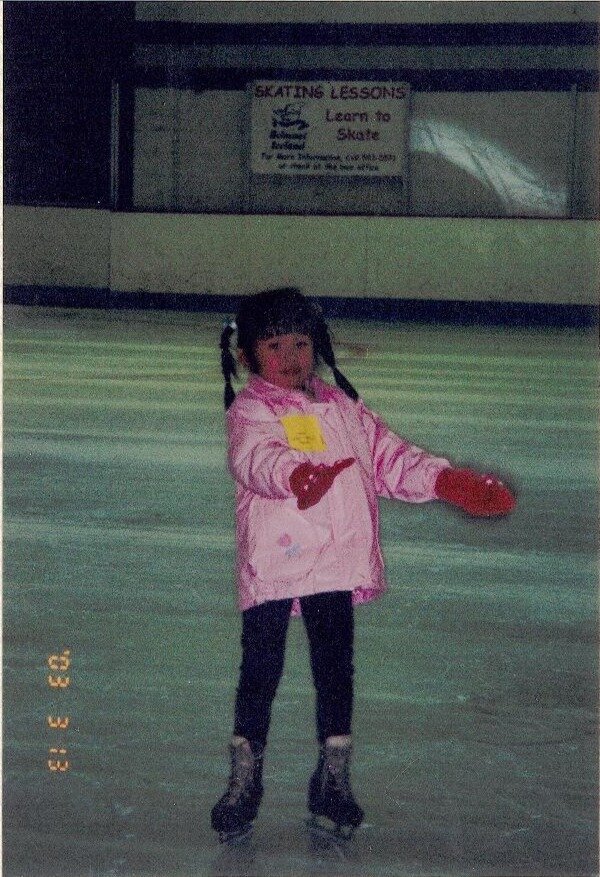Louise Yang, a recent graduate from UC Santa Cruz, was a figure skater in her past life. Now, at age 21, she reflects upon her 13 years on the ice and how being a figure skater has impacted her life today.
A NorCal native, Louise began skating at the ripe age of 5 at Belmont Iceland, a local skating rink. As with all young children, her sport began as a hobby and fun pastime. Her first coach was Jim Sun, who remained her coach for the rest of her career.
Unlike most skaters, who go into the sport with aspirations of competing, Louise’s focus was less on competing and more on mastery of skating technique. Her coach had always been focused on building a strong skating foundation, rather than pushing students to go out and compete. His philosophy was, if you don’t have good foundation, it doesn’t matter how much competition experience you have. With a solid foundation, you can take your skating anywhere you want. So, instead of competing, Louise channeled her energy into passing skating tests. She competed a few times in her career, competing for the first time at age 9. In high school, Louise joined a theater on ice team comprised of 20 skaters. She and her team had the honor of competing at the theater on ice nationals, where they placed 1st for two consecutive years, in 2013 and 2014. “Competing at nationals for the first time was nothing like I’d ever experienced! It was so cool meeting so many different people from all around the country with a shared interest.”
Louise’s enjoyment for figure skating was pure and stemmed from an intrinsic love and appreciation for the sport. Despite not being a serious competitive skater, she was still able to find joy and fulfillment in skating. When asked what her favorite part of figure skating was, Louise replied, “Skating was always something I loved. I always liked how I had that one thing in my life that remained constant, especially during my formative years. When I started, I didn’t realize it was ‘my thing’. Once I grew older, I realized that figure skating was what I loved the most out of all my hobbies. When meeting someone new, being a skater was something I always mentioned. I was proud of being part of a community and sport that is so unique. I simply love the feeling of being on the ice and gliding.”
Louise remained happy throughout the rest of her skating career and rarely experienced the toxic culture that can come with being an elite skater. This fact makes one wonder—at the end of the day, is it healthier for young people to pursue sports simply as a passionate hobby and pastime, rather than as an intense, all-consuming quest towards Olympic gold? Louise shares her thoughts on this topic. “If you want the Olympics to be your end goal, then yes, you have to make many sacrifices for your sport, but how much you are willing to sacrifice depends on how much you want it. The goal has to be pure and stem from within. I’ve heard of parents pushing their kids to do it, and that can be really detrimental to the kid’s well-being, especially if the kid doesn’t share the same dream. Having to practice over and over can be draining and painful. However, if you really love the sport, then you wouldn’t mind putting everything into skating.”
Interestingly, Louise used to train at the same rink as 18-year-old Olympic figure skater, Vincent Zhou. “He skated at public sessions sometimes. I distinctly remember his mother, who was always the one yelling at him from the sidelines. She very rarely let him off the ice, and didn’t let him take breaks. At one point, the manager of the rink even told his mom to leave because she was being too distracting. While Vincent must have loved skating to have gone that far in his career, when he was training at Belmont Iceland, it certainly did not look like he was enjoying what he was doing it at all. I see it a lot where parents push kids to keep practicing, to the point where it kills their spirit.”
So, how hard is too hard in sports? According to Louise, there is a fine line between constructive pressure and destructive pressure. “There is a gray area when you’re young, because most young kids don’t really know what they want. If your parents don’t push you, you might regret it later on. However, once you reach a certain age and have a better idea of how you feel about the sport, I think helicopter parenting can do more harm than good. When kids reach a certain level of maturity, parents should let their kids decide what they want for themselves, and whether they want to continue the sport. If the kid isn’t enjoying the sport anymore, then there really is no point in pushing further and adopting a ‘no pain no gain’ mindset. When you’re older, it’s important to engage in self-care. Obviously there’s pain in sports, but you know yourself the best. If the pursuit of sports is starting to take a toll on your mental health, then that’s when you should know to take a break and eventually come back to it with a fresh mindset.”
When Louise began college back in 2015, her busy lifestyle as a full-time student rendered her unable to skate as regularly as she used to. “Whenever I am asked the question of ‘what’s your hobby’, more recently I’d say ‘I used to skate’, rather than ‘I skate’. It doesn’t make me sad that I’m no longer able to skate every day. It’s just different, because skating has been such an active part of my life for so long. It’s weird to talk about it as if it were in my past. However, I’m definitely going to keep skating when I have a chance. As of right now it’ll stay recreational, more on the fun side. Even though I’m not skating regularly anymore, when I do get to skate, it’s still very fulfilling.”
Louise sometimes wonders what her life would have been like, had she been more ambitious with her goals in figure skating. “I was hardworking, but I was never super aggressive. I never got ‘tunnel-visioned’ into my goals and because of this, I often asked myself, ‘Do you really want this?’ I did, but I wasn’t super aggressive. For instance, if I don’t reach one of my goals, I’m not going to get distraught over it. My coach always told me that I wasn’t aggressive enough about stuff. I always wanted to be more assertive about my goals, and I knew I had potential, but maybe I just wasn’t tunnel-visioned enough. I don’t think I’ve ever wondered, ‘What if I had gone to the Olympics?’ I’ve definitely dreamed big before, but I’ve always saw it as just a dream. I never imagined it as possibly becoming reality, which is why I never thought what it would have been like to be in that position.”
While Louise was never overly ambitious with her skating, at the end of the day, she emerged satisfied and happy and has a great, healthy relationship with her sport. She never experienced the crippling pressure that many aspiring Olympians face—pressure that often drives athletes to eating disorders and mental breakdowns. She is living proof that one need not be a highly competitive athlete to find meaning and fulfillment in sports.




